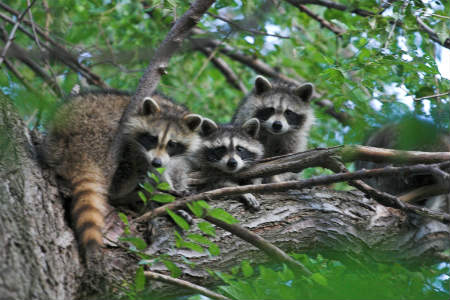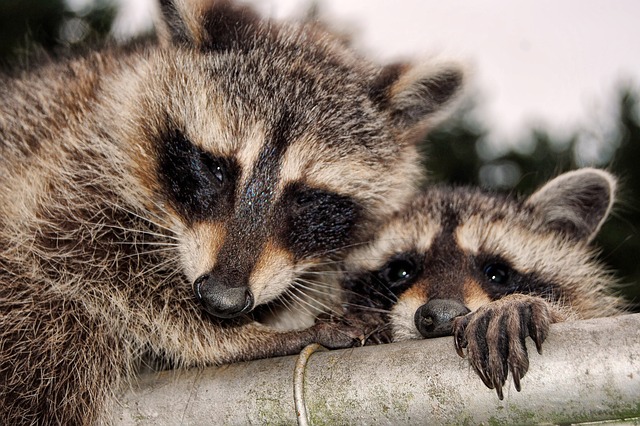
In this post, we’ll discuss why you should leave baby raccoons alone if you have found them without their mother around.
You may have found some baby raccoons alone without their mother. In spring and early summer, this can be a common occurrence in suburban or even urban areas.
We’ll admit, baby raccoons can be cute. When many people see some cute little baby raccoons alone without their mother, the reaction will often be “Awwww! They’re so cute! And all alone. The poor things. I should help them.”.
Don’t touch them! Baby raccoons should be left alone.
It is actually very normal for baby raccoons to be left alone by their mother while she goes searching for food, or maybe even to go take a nap in a quiet place.
Though “helicopter parenting” may be all the rage with human parents, animals in the wild often need to leave their young babies alone while they search for food. It’s easier to hunt without babies and it’s safer for them as well.
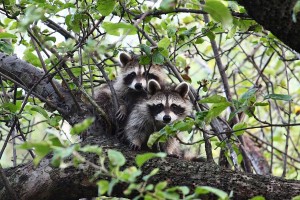 When you see baby robins alone in a bird’s nest, you don’t worry, because you know their mom will be back soon with food for them. They get left alone constantly while mom goes hunting. It’s really not very different with raccoons.
When you see baby robins alone in a bird’s nest, you don’t worry, because you know their mom will be back soon with food for them. They get left alone constantly while mom goes hunting. It’s really not very different with raccoons.
Wildlife biologist Dianne Robinson of the Department of Natural Resources “Keep Wildlife Wild” campaign says:
“….mother raccoons will leave their kits alone while they are searching for food. It’s normal for kits to be frolicking or vocalizing near their den without mom. Well-meaning people may find raccoon kits in the day time and mistakenly think those kits are in trouble. Provided the kit looks healthy and are not sick or healthy, the best action is to leave the kits alone….”
The DNR receives many calls every spring about abandoned baby raccoons. It’s very likely that their mother will be back for them shortly. She might even be hiding nearby waiting for you to leave.
You should leave the area and leave the babies alone. If you are worried about them, check back again on them in a couple hours. It’s likely that they’ve left for the den with their mother.
If you find a raccoon baby and it appears to be sick or injured, you should contact the Illinois DNR or a licensed wildlife rehabilitator.
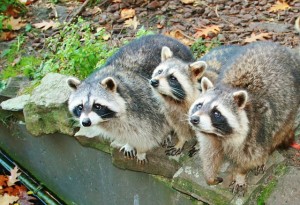 No matter how cute they may be, baby raccoons are wild animals, and wild animals are best left alone for both their health and safety and yours too.
No matter how cute they may be, baby raccoons are wild animals, and wild animals are best left alone for both their health and safety and yours too.
Raccoons can carry dangerous diseases and their droppings can carry disease as well. They should not be handled by people.
Except in very rare instances – leave those baby raccoons alone!
We provide humane, live animal trapping of raccoons and other nuisance animals
If you are anywhere in the greater Chicagoland area, we can help!
Phone (847) 464-1861
Sources:
Raccoon Kits Are Around, DNR Says Best Thing To Do Is Let Them Be
What to do with a baby raccoon I found?
Image credit: Baby Raccoon




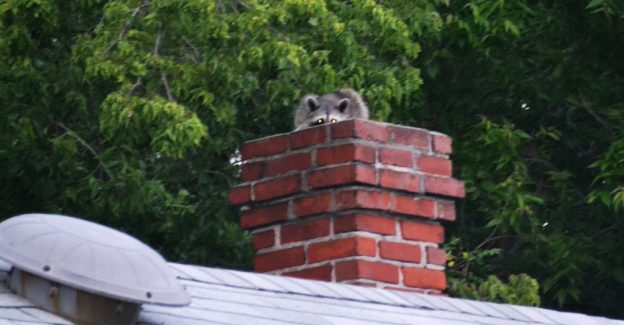
 A chimney cap is the best way to prevent wildlife from moving into your chimney.
A chimney cap is the best way to prevent wildlife from moving into your chimney. 
 The main reason that a raccoon will visit your home is in a search for food. If your property becomes identified as an easy source of food, raccoons will return again and again to get food.
The main reason that a raccoon will visit your home is in a search for food. If your property becomes identified as an easy source of food, raccoons will return again and again to get food.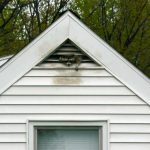 Make sure you’re not making raccoons lives easier for them by leaving places where they can enter your home. Check your roof and attic for any openings that may give a raccoon (or other animals) the space they need to get inside. Have a cap on your chimney to make sure they can’t get in through there.
Make sure you’re not making raccoons lives easier for them by leaving places where they can enter your home. Check your roof and attic for any openings that may give a raccoon (or other animals) the space they need to get inside. Have a cap on your chimney to make sure they can’t get in through there.
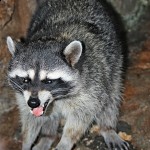 If you are hearing animal sounds in your attic at night, it is most commonly a raccoon because they are nocturnal animals and thus most active at night.
If you are hearing animal sounds in your attic at night, it is most commonly a raccoon because they are nocturnal animals and thus most active at night.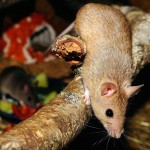 Being the smallest animal, mice will be much harder to hear. The saying “quiet as a mouse” exists for a reason. But it is possible you may hear them moving around at night. It might sound like a light scratching or chewing sound.
Being the smallest animal, mice will be much harder to hear. The saying “quiet as a mouse” exists for a reason. But it is possible you may hear them moving around at night. It might sound like a light scratching or chewing sound.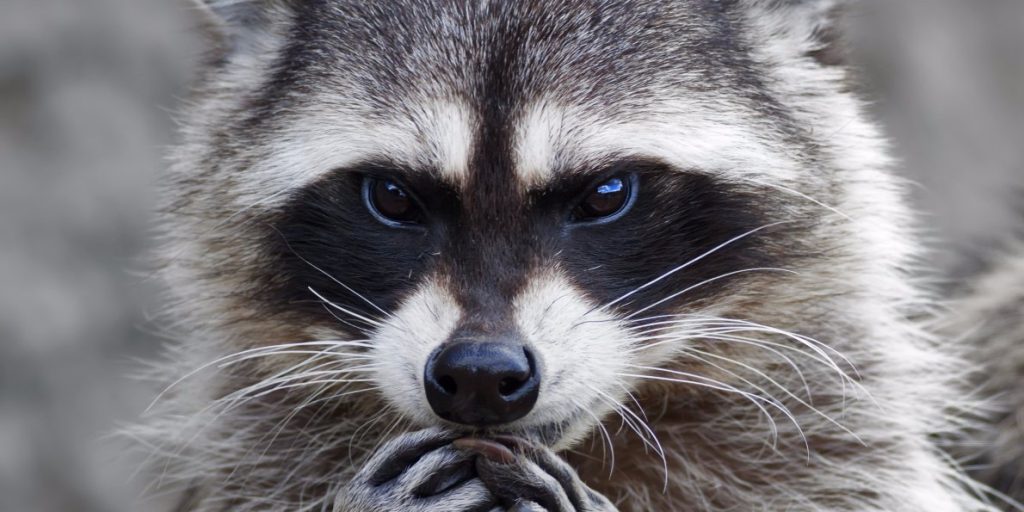
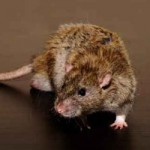 These small mammals may all be removed with no permit needed.
These small mammals may all be removed with no permit needed.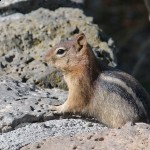 The eastern chipmunk and the thirteen-lined ground squirrels may be removed without a permit.
The eastern chipmunk and the thirteen-lined ground squirrels may be removed without a permit.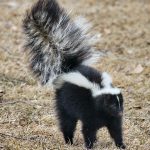
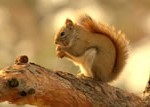 The Illinois Department of Natural Resources (IDNR) recommends hiring a professional wildlife removal service to capture and remove squirrels. If you want to remove a squirrel yourself, contact an IDNR District Wildlife Biologist to see if you qualify for a Nuisance Animal Removal Permit.
The Illinois Department of Natural Resources (IDNR) recommends hiring a professional wildlife removal service to capture and remove squirrels. If you want to remove a squirrel yourself, contact an IDNR District Wildlife Biologist to see if you qualify for a Nuisance Animal Removal Permit.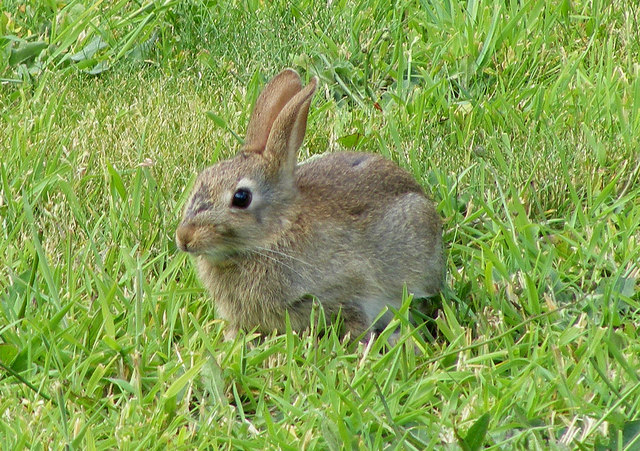 The Illinois Department of Natural Resources (IDNR) recommends hiring a professional wildlife removal service to capture and remove rabbits. If you want to remove a rabbit yourself, contact an IDNR District Wildlife Biologist to see if you qualify for a Nuisance Animal Removal Permit.
The Illinois Department of Natural Resources (IDNR) recommends hiring a professional wildlife removal service to capture and remove rabbits. If you want to remove a rabbit yourself, contact an IDNR District Wildlife Biologist to see if you qualify for a Nuisance Animal Removal Permit.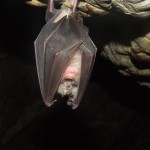 The (IDNR) recommends hiring a professional
The (IDNR) recommends hiring a professional 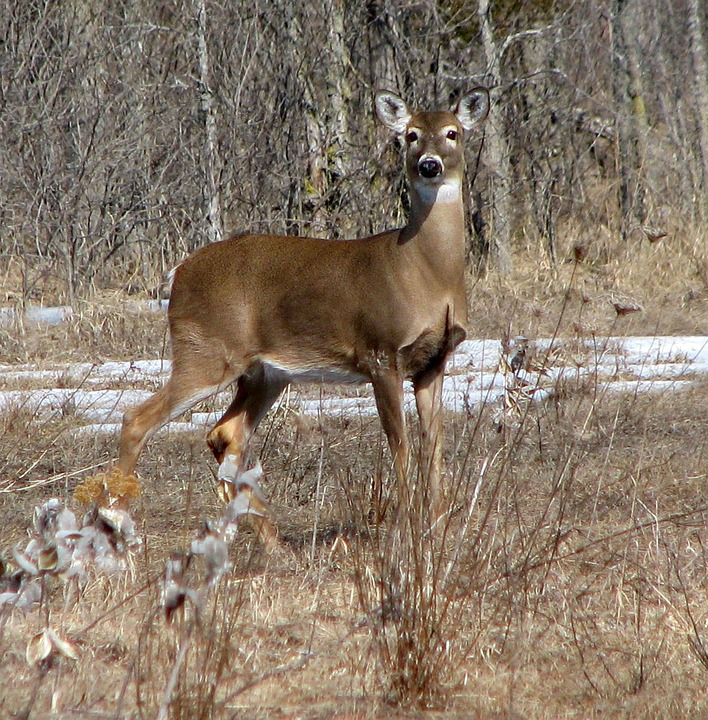 White-tailed deer are protected under the Illinois Wildlife Code as a game species. It is illegal to take live deer from the wild unless you have received a
White-tailed deer are protected under the Illinois Wildlife Code as a game species. It is illegal to take live deer from the wild unless you have received a 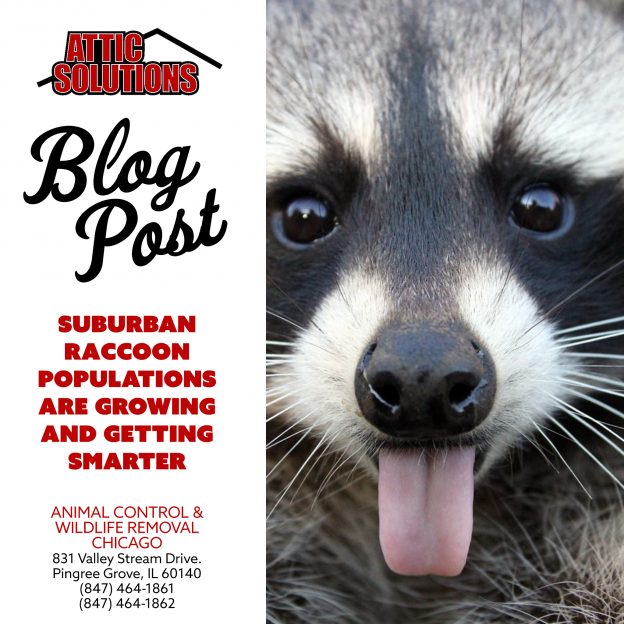
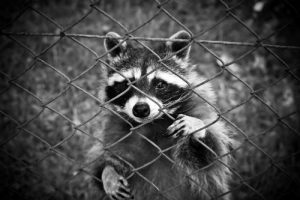 Their numbers in the suburbs have been growing for decades and they continue to expand in dense urban areas as well.
Their numbers in the suburbs have been growing for decades and they continue to expand in dense urban areas as well.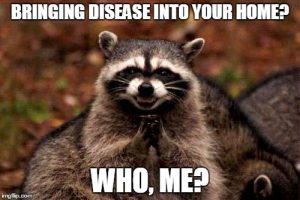 To summarize, they’re not picky eaters, not picky sleepers, aren’t very afraid of humans, and most of all, they have nimble hands and the ability to learn from their environment.
To summarize, they’re not picky eaters, not picky sleepers, aren’t very afraid of humans, and most of all, they have nimble hands and the ability to learn from their environment.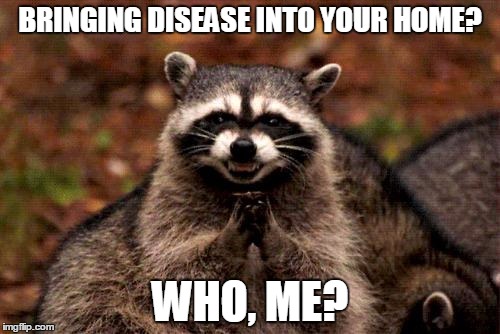
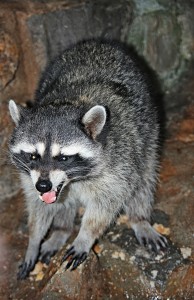
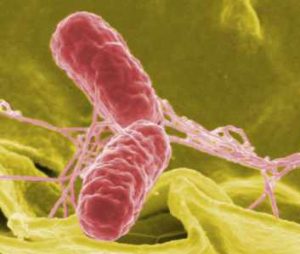
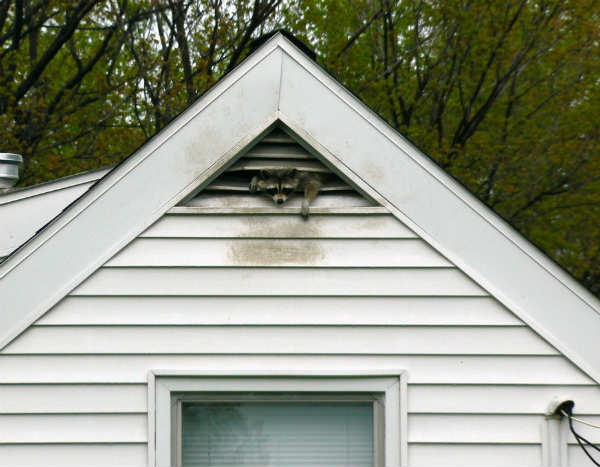
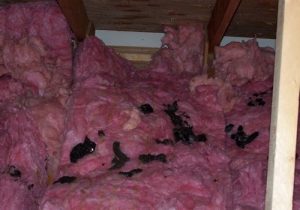 ate and urinate in the same place. The place where a raccoon continues to return to will begin to form noticeable piles. These areas are commonly referred to as raccoon latrines.
ate and urinate in the same place. The place where a raccoon continues to return to will begin to form noticeable piles. These areas are commonly referred to as raccoon latrines.